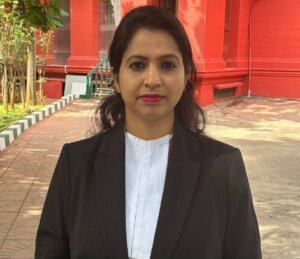If you want to finish your divorce case smoothly, you will need well-experienced & trustworthy lawyers in your hands, You can find the best advocates in Bangalore here
Advocate Varun Papireddy

Having a suitable advocate during a personal relationship battle is of utmost importance. Advocate Varun Papireddy is a reliable family law expert in Bangalore, known for his calculated tactics, courtroom power, and client-focused representation. He is widely looked upon as one of the finest divorce lawyers in Bangalore, handling both mutual consent and contested divorce cases over two decades with ambiguity and determination. As a highly appreciated women’s divorce advocate in Bangalore, he provides sturdy, concerned support in cases involving marital brutality and cruelty. Clients also trust him as a proficient domestic violence lawyer in Bangalore, offering pivotal legal protection under the Protection of Women from Domestic Violence Act. He is a reliable child custody lawyer in Bangalore, where parents feel their child’s right is trusted in the right hands. Advocate Varun Papireddy is known for careful preparation, practical arbitration, and firm commitment, guaranteeing clients feel both legally and personally supported during life’s most stimulating shifts.
☎️ Contact number: 9986020021
Advocate Kiran Kumar

Advocate Kiran Kumar B.M is a renowned family law professional in Bangalore, known for combining strategic legal thinking with honest compassion in sensitively complex disputes. When a family is on the verge of collapse, he is the appropriate person to handle it. He is extensively looked upon as one of the top divorce lawyers in Bangalore, handling both mutual consent and contested divorces with accuracy and discretion for over two decades. He is well known for his work in matters related to divorce, domestic abuse, child custody disputes, and complex matrimonial property issues. He represents both men and women with determination and consideration. He is also acknowledged as a responsible domestic violence lawyer in Bangalore, providing solid legal care under the Protection of Women from Domestic Violence Act. He is known for his client-first approach, and parents trust him as a child custody lawyer as he protects the child’s values and respects the parents’ integrity.
☎️ Contact number: 9916008367
Advocate Poojashree

Advocate Poojashree is a trustworthy and highly valued choice if you require a female divorce lawyer who can understand and respect your emotions. Widely regarded as one of the leading women divorce lawyers in Bangalore, she is known for her robust activism in divorce, domestic violence, child custody, and women’s rights cases. Clients often look past legal knowledge; they prefer compassion, freedom of choice, and strength. Offering a safe work environment where the clients feel their thoughts are valued, protected, and heard is the reason why people choose Advocate Poojashree. With wide practice in both mutual consent and contested divorce cases, she associates client care with strategic legal performance. Her work as a domestic violence lawyer in Bangalore, particularly under the Protection of Women from Domestic Violence Act, has made her a resilient advocate for women and children in the hunt for righteousness and lasting safety.
☎️ Contact number: 9738621744
Advocate Esther Balakrishna

Esther Balakrishna is an accomplished and compassionate divorce lawyer with an unwavering commitment to advocating for the rights and best interests of clients navigating the complexities of family law. With an extensive background in divorce and matrimonial law, she brings a wealth of experience and expertise to each case, ensuring clients receive the highest level of legal representation.
☎️ Contact number: 7022159228
Advocate Sudhir

Advocate Sudhir is one of the best divorce lawyers in Bangalore with 11+ years of experience. He is a divorce lawyer known for his simple, inexpensive, and dependable legal solutions. He approaches litigation with integrity, dedication, and realism, and he has a distinct legal instinct for success. He is a family law advocate who caters to several parts of the profession, and he can provide you with perfect justice. Because they instruct clients about the reasons for divorce, the process, and how to get a divorce, they keep the clients well-updated and up-to-date on court procedures.
☎️ Contact number: 9361722724
Advocate Gopal Reddy

As one of the leading divorce lawyers in Bangalore, Advocate Gopal Reddy is well-known for his excellence in his field. he has a full-service law firm that provides comprehensive help in all types of litigation, including consultation and legal representation in High Court, Supreme Court, and Civil Court cases, with a focus on divorce cases under the Indian legal system. As a reputable law firm, they are dedicated to supplying clients with efficient and result-oriented approaches. The firm’s operations include consulting, litigation, soliciting, and paralegal services. From its founding, the company has been on a journey of development.
☎️ Contact number: 9361722724
Advocate Sunil Kumar

In Bangalore, Advocate Sunil Kumar is very popular and has a lot of experience and knowledge in handling hard cases. He has more than 15 of experience as an advocate and specialises in handling divorce and criminal matters. If you’re looking for a nice, humble, experienced lawyer, then it’s an excellent choice to contact him to take your divorce case easily without any hassle. His charges are very affordable feel free to give him a call and start consulting about your case.
☎️ Contact number: 9361722724
Advocate Omar Shariff

Advocate Omar Shariff and his team are a team of lawyers who work diligently on divorce cases and are among the top divorce attorneys. They give you a unique insight and have significant experience in this area. They are, indeed, a professionally trained group of lawyers who work mostly to provide you with the desired favourable outcome. This firm has a team of experienced advisors who are constantly adapting to emerging trends and changes in the field to provide clients with a comprehensive legal solution.
☎️ Contact number: 9361722724
Advocate Ramesh Kumar

Advocate Ramesh Kumar leads the list of famous divorce lawyers in Bangalore after accumulating more than twenty years of experience in family law. Throughout his career, which has lasted twenty years, he has dealt with complex matrimonial cases, such as high-net-worth divorces and asset division disputes, along with child custody battles and alimony negotiations. Through his approach that combines visionary legal talent with personal sensitivity, he has gained extensive trust from many clients. Through his work, Advocate Kumar delivers fair settlements to his clients within both contested and mutual divorce cases to safeguard their well-being. He provides unique legal strategies for each divorce case because he understands that divorce often stands as life’s major difficult phase. The law practice with Advocate Kumar focuses on client-oriented services that extend from mediation to litigation to post-divorce legal assistance. The advocate defends his clients by safeguarding their rights and interests in contentious high-stakes cases and peaceful amicable separations. Advocate Ramesh Kumar maintains his position as an elite divorce law expert because he consistently achieves positive outcomes for his clients throughout Bangalore.
☎️ Contact number: 9361722724
Advocate Priya Narayan

For more than 15 years Advocate Priya Narayan has practiced family law in Bangalore where she stands as a respected divorce advocate. Through her extensive experience, she developed an excellent standing as a lawyer who understands matrimonial disputes and conducts alimony negotiations while fighting for child custody and dealing with domestic violence cases. Her expertise reaches beyond legal representation as she gives her clients both emotional and strategic support throughout their most difficult life period. Through her advocacy work Advocate Priya Narayan specializes in women’s rights and empowerment by assisting clients to acquire equitable money settlements, protective measures and child custody agreements. The lawyer has put her legal acumen and persuasive advocacy skills to work in district court and high court cases to achieve swift and beneficial results for her clients. She maintains complete protection of client interests throughout the entire legal process when handling mutual divorces alongside contested separations. Individuals who want a firm and understanding attorney prefer her because she combines an empathetic nature with assertive representation. She advocates for mediation to decrease conflicts yet she stands ready to use aggressive courtroom actions whenever the situation demands it. Due to her excellent track record and devotion to justice Advocate Priya Narayan has become one of the most respected Divorce Advocates in Bangalore.
☎️ Contact number: 9361722724
Advocate Sanjay Mehta

Advocate Sanjay Mehta is the one of the most sought-after Lawyers in Bangalore for Divorce because he handles family disputes with precision. He brings twenty-one years of family law experience to his divorce work where he protects clients with fair settlements and legal safeguards from start to finish of their case. Among his areas of expertise are property settlements, spousal support, alimony claims and child custody matters which has made him a widely respected legal expert. Advocate Mehta delivers customized legal strategies for each client through his practice of mutual divorces and contested divorces. His deep understanding of divorce consequences motivates him to handle cases swiftly with a focus on securing his clients’ most beneficial results. Through negotiation and litigation strategies he delivers optimal legal results to each client. Advocate Mehta demonstrates excellence in litigation techniques and family legal expertise which enables him to solve cases at district courts, family courts and the Karnataka High Court. Professionalism along with legal acumen and his client-centered methodology make him the preferred divorce lawyer for people looking for skilled representation in Bangalore. As he provides fair resolutions and just outcomes he has grown to be a reliable legal representative for divorce cases.
☎️ Contact number: 9361722724
Advocate Ayesha Khan

Advocate Ayesha Khan stands out as a Good Divorce Lawyers in Bangalore because she combines practical advice with client-focused legal approaches which has created her solid reputation. Advocate Ayesha Khan possesses more than ten years of experience in family law practice which includes handling both mutual divorces alongside contested separations along with child custody battles and disputes about alimony payments. Advocate Ayesha Khan has established a strong reputation because she explains complex legal procedures to clients who need divorce services without stress. The use of mediation and alternative dispute resolution methods holds great importance to Advocate Khan since they enable couples to find peaceful solutions that bypass long legal battles. She acts as an aggressive defender of her clients in court to safeguard their rights but mostly operates as a mediator. Matrimonial laws combined with her caring nature provide her the ability to lead clients through proceedings with certainty and reassurance. She prioritizes just settlements especially when financial support requests and child welfare and asset division matters are at stake. She dedicates herself to continuous effort to secure successful results whether handling contentious divorces or amicable divorces with mutual consent. All divorcing clients in Bangalore depend on Advocate Ayesha Khan’s expertise due to her proven record of success and pleased clientele.
☎️ Contact number: 9361722724
Advocate Rohit Shetty

Advocate Rohit Shetty stands as a Top Divorce Lawyers in Bangalore because of his exceptional legal expertise and successful outcome-oriented approach. His twenty-year history in family law practice has resulted in the successful representation of high-stakes divorce clients who received swift favourable settlements. His competence in handling complex legal disagreements involving child custody battles, domestic violence cases and high-value alimony demands has established him as a well-known legal authority in Bangalore.
Advocate Shetty practices assertive advocacy alongside strategic litigation to deliver the best possible legal protection for his clients in divorced disputes that become contested. Through his experience, he understands the full scope of financial settlements and the division of marital assets in addition to protecting clients from improper claims. The legal professional has obtained notable judicial decisions in matrimonial cases for his many clients throughout family courts, district courts and the Karnataka High Court. He shows dedication both to aggressive case handling and to client welfare by acting as a caring guide among those facing emotional distress. The lawyer offers customized strategies to help his clients make knowledgeable decisions about their upcoming steps. Advocate Rohit Shetty maintains a superb reputation for successful divorce case outcomes which has secured his position as a top divorce lawyer for clients in Bangalore.
☎️ Contact number: 9361722724
Advocate Sneha Deshpande

Advocate Sneha Deshpande operates her divorce legal practice from Bangalore where her exceptional expertise in matrimonial matters has established a strong professional standing. A legal practitioner who has handled family matters for over 15 years now brings success to her clients through various divorce cases including consensual divorces, contested separations, contentious child custody battles and property settlement disputes. People who need divorce representation prefer her services because she successfully establishes settlements through negotiations and solves disputes using mediation or litigation techniques.The caring nature of Advocate Deshpande stands out because she understands how divorces exhaust people emotionally. As part of her service, she provides both robust legal defence strategies and pragmatic advice about managing separation issues to her clients. In her practice, she dedicates attention to her client’s interests while pursuing equitable resolutions regardless of the divorce situation. Through her extensive family law expertise she creates personalized legal approaches which produce optimal results for her clients. She actively advocates for women’s rights together with child welfare matters making her a preferred candidate for domestic violence and child custody cases. Based on her proven achievement Advocate Sneha Deshpande has become a recognized Divorce Lawyer Bangalore.
☎️ Contact number: 9361722724
Advocate Arvind Krishnan

The divorce law sector of Bangalore benefits from Advocate Arvind Krishnan’s status as a top professional who delivers strategic services while demonstrating extensive knowledge of family law. Arvind Krishnan has built a career spanning 18 years where he has helped many clients navigate divorce challenges from start to finish while safeguarding their rights throughout the process. He manages his practice between uncontested divorce and contested separation matters by delivering case solutions with high-level expertise. The extensive body of knowledge he possesses extends to asset distribution while enabling him to solve disputes regarding spousal support and child custody along with alimony arrangements making him the most sought legal expert for divorce cases. His financial analysis expertise leads to fair distributions of property assets and financial awards for his clients. As a skilled negotiator and mediator, Advocate Krishnan helps his clients find acceptable solutions whenever possible to reach settlements. His courtroom approach involves intense advocacy to deliver the optimal legal results for his clients yet he first exhausts all non-litigation strategies. His dedication to clients and thorough case preparation and justice-focused practices have made him a respected divorce lawyer in Bangalore. The reliable results-oriented service Advocate Arvind Krishnan provides to divorce clients across Bangalore makes him a leading choice for legal representation in the region.
☎️ Contact number: 9361722724
Advocate Kavitha Rao

The trustworthy lawyer for divorce matters in Bangalore is Advocate Kavitha Rao. Her practice in family law spans over ten years as she assists many clients through challenging divorce proceedings. Her expertise combined with professionalism along with compassionate demeanour has established her position as one of Bangalore’s most demanded legal professionals. Advocate Rao focuses her practice on divorce cases that include situations of domestic violence together with child custody disputes and alimony distribution and financial settlement matters. Advocate Rao stands out for offering individualized legal solutions to every client through her expert advocacy services. In both mutual consent divorces and high-conflict contested cases, she delivers fair treatment alongside the highest possible outcomes to her clients. Divorce for her represents both legal aspects and emotional realities thus her strategy uses legal planning together with empathetic client understanding. She first tries to resolve issues through negotiations or mediation until she needs to implement aggressive court defence. She has made herself a trusted choice for divorcing individuals because of her unwavering devotion to justice combined with strong client advocacy along with comprehensive experience delivering fair outcomes. He is considered as the best lawyer in bangalore for divorce.
☎️ Contact number: 9361722724
Advocate Karthik Menon

Many of his clients recognize Advocate Karthik Menon as the best divorce lawyer in Bangalore through his established reputation as a legal professional. The extensive 15-year legal career of this lawyer has developed his well-recognized expertise for handling challenging divorce cases and his specific ability to address property disputes, child custody battles and complex alimony agreements. The precise and strategic way he handles emotionally intense legal proceedings establishes him as a premier divorce lawyer operating in Bangalore. Advocate Menon defends clients before family courts, district courts and the Karnataka High Court to safeguard their interests through the entire divorce process. Through accurate analysis, strategic legal design and forceful courtroom attitudes Advocate Menon achieves successful outcomes that provide benefits to his clients. His litigation strategy includes forceful representation except when he favours mediation as a choice for dispute resolution to cut down legal struggles involving his clients. The combination of his client-focused practice with deep legal knowledge in family matters and his strong professional history has made Advocate Menon an elite choice for divorce lawyers in Bangalore.
☎️ Contact number: 9361722724
Advocate Neha Sinha

The Bangalore district recognizes Advocate Neha Sinha as its best divorce lawyer in bangalore because she has successfully guided numerous people through their divorce process. Her twelve years of experience in family law have given her the reputation of providing clients with strategic legal solutions while maintaining constant support throughout each case. Through her practice, she specializes in alimony claims alongside child custody disputes together with asset division and domestic violence cases to provide fair legal services to each client. Advocate Sinha stands out through the individualized legal tactics she creates to match the distinctive problems faced by each divorce case. She dedicates herself to defending her clients in both simple mutual consent divorce cases and contested divorce matters through her commitment to protect their rights and achieve successful results. Through her skilled negotiation skills and courtroom aggressiveness, Advocate Sinha obtains many successful settlements as well as court verdicts. In addition to being an accomplished lawyer, she actively works to maintain fairness alongside justice for her clients as she provides them with both information and power during legal proceedings. Advocate Neha Sinha maintains an excellent professional reputation in Bangalore’s legal sector which makes her a preferred legal expert for divorce representation in Bangalore.
☎️ Contact number: 9361722724
Advocate Vishal Kapoor

The divorce legal sector of Bangalore has a highly regarded professional in Advocate Vishal Kapoor because of his innovative legal methods and deep understanding of family law. Advocate Neha Sinha has worked for more than 20 years as a lawyer to achieve success in various high-profile divorce cases which included business assets disputes alongside cases involving wealthy clients’ child custody disputes and cross-border jurisdictional issues. His examination of intricate financial and legal disputes has established him as the trusted legal authority in Bangalore.Due to his methodical preparation work and customized legal approaches Advocate Kapoor successfully secures beneficial settlements and protects clients from distress for both emotions and finances. His legal expertise includes negotiating proper alimony agreements combined with protecting parent rights in child custody matters and guaranteeing the fair share of marital property. His extensive knowledge includes expert handling of divorce cases that cross international borders since he possesses a complete understanding of worldwide family law requirements. As an expert litigator, Advocate Kapoor understands the value of alternative dispute resolution so he helps clients find solutions through mediation and arbitration when possible. He shows great determination as a litigator by fighting passionately for his clients yet prefers alternative dispute resolution whenever possible. Vishal Kapoor stands as the Best Divorce Lawyers in Bangalore because of his successful court results.
☎️ Contact number: 9361722724
Indian society is a conservative and close-knit society that is firmly rooted in family values and family feelings, which are the core of both our country and our society. Divorce is therefore a new and unheard-of concept in this traditional society. But today, as we increasingly adjust to our new roots, families want a divorce because they are tired of the long and difficult family process that they were forced to continue with their poor marriage. So people can no longer accept all the toxic stuff that happens in marriages and they want a stable married union or a divorce as soon as possible from their toxic partnership that is tearing them apart.
As a result of increased visibility and the availability of several excellent law firms, people are becoming more open to divorce cases and able to go through the divorce process. As we all know, divorce is a serious and sensitive topic within families that should be handled delicately and pro-actively rather than causing a ruckus. Divorce is a slow journey that can take several months to end, and things can take a U-turn to get much uglier, stirring up the sides. As a result, it will be the divorce lawyers’ primary responsibility to manage the case successfully and efficiently, thus protecting their client from this unexpected crisis.
And in a city like Bangalore, where there have been a lot of divorce cases recently. So, if you’re searching for the best divorce lawyers in Bangalore, read this article and get a good idea of how things work with your lawyer. Since these attorneys have extensive expertise, they will go over your case and give you a good and constructive outcome in a timely manner. As we all know, Bangalore is an established city, and the divorce lawyers in Bangalore are among the best in the country, recognized for their expertise and ability to cover and manage their clients’ cases efficiently.
Divorce cases involve 5 steps:
- If the divorce is mutually agreed upon, it would be straightforward and inexpensive, effectively resolving the issue.
- However, where there is cruelty or one of the parties refuses to agree with the divorce, the procedure gets longer and time-consuming, and it takes the finest attorneys in Bangalore to treat those cases and deliver you a positive decision helping their clients to the fullest extent possible.
- Another important consideration is child custody – child custody becomes crucial as the parties appeal the child’s rights. In this situation, the council must successfully perform his or her duties in order to secure custody of the child for his or her client.
- Alimony, or financial support, frequently plays a significant role in divorces where all spouses do not wish to divorce amicably. To ensure that everything goes well, a lot of analysis must be undertaken to provide a good argument for funds put aside for alimony.
- If the couple registers a joint property, it should also be required that it be fairly courteously shared among the couple.
In India, applying for divorce is a daunting task because many people are unaware of the measures and procedures that must be followed. In fact, the couples are terrified of facing the legal authorities. So the primary duty of divorce lawyers in Bangalore is to persuade you and direct you in the right format, much like a teacher or a mentor would guide a student or a friend with proper comprehension and consideration. This is because the client has now been subjected to a great deal of mental and even physical abuse, and in most cases, they will get irritated and anxious at their court hearing. Since these attorneys have a proven track record in managing litigation professionally.
The fees choice is also client-friendly and charged at a reasonable cost. The quotation is often delivered in a clear way, with no secret fees.
There will be several meetings with the client where you will need to discuss the documentary evidence and any legal paperwork that must be filed on the petition. How to proceed with the legal procedure and how the client must present himself/herself in front of the judge with the greatest respect. The estimated time required to solve the case. How you can resolve the payment on your case, as well as the forms and phases of payment. The client’s behaviour in and out of court, as the court closely monitors the behaviour of parents, particularly in cases involving child custody. All of these laws and legislation will be thoroughly clarified by the lawyers, who will treat them with respect and precision.
Divorce is never a convenient task for any couple, but it’s easier to walk away than remain in a dysfunctional and difficult relationship compromising when all is at stake. Feel free to contact us
Frequently Asked Questions (FAQ)
1. How much are lawyer fees for divorce in Bangalore?
The court cost is low at Rs. 15, but the lawyers’ expenses consume most of the funding. Women, on the other hand, can obtain free legal assistance by contacting the legal aid cell. This varies by location, and the fees for seeking a divorce vary according to the severity. If both spouses have come out and settled the majority of their fundamental difficulties in light of their divorce issues, the procedure will be simple and affordable. This is because if the lawsuit drags on for months, the spouses will have to pay extra expenses. This, too, differs depending on where the divorce case is heard. If this divorce case is filed in district or family court, divorce attorneys do not charge an exorbitant fee for the attendance. If the matter is taken to the High Court or the Supreme Court, the price might skyrocket.
Furthermore, prominent and experienced divorce lawyers with a high success record would charge a higher fee than their regular counterparts.
This is visible in established law firms that promote a truly high success record, thus they inevitably come with a hefty price tag. Furthermore, divorce attorneys in Mumbai, Kolkata, and Bangalore demand larger fees than lawyers in Chennai or Kochi. If you want the services of an experienced divorce lawyer, their fees for a mutual consent divorce range from 15,000 to 30,000. Most attorneys in Mumbai charge between INR 5000 and 7000 every hearing, therefore the longer the hearing lasts, the more you’ll have to spend. This is likely to alter once large players are engaged, with senior divorce attorneys with years of expertise charging as much as INR 30,000 for a single session.
Aside from that, attorneys demand a supplementary fee for a consultation. This occurs when couples must resolve their disagreements and make important decisions. Because mutual consent is so important in child custody, and alimony. This is because the spouses must be clear on these issues, therefore consultation is essential. A qualified divorce attorney will be able to walk you through the process of dividing your assets, managing child custody, and determining the proper alimony. This may necessitate repeated sittings, which will cost you significantly more. When the couples have chosen and reached a consensus on these issues, the cost might be significantly lowered.
2. How do I file for divorce in Bangalore?
Petition submission: Your divorce will be filed in one of the following places by your lawyers:
- Where the husband and wife lived most recently.
- The location of the husband and wife’s wedding.
- The location of the wife’s present residence.
Grant of first motion: After the statements are recorded, the court issues an order on the first motion. After filing the petition, the two parties must record their remarks in front of the judge. As previously indicated, it is presumed that the two parties seek to divorce of their own free will, i.e. with mutual consent. As a result, both parties must express their unequivocal agreement to the divorce. The parties will be expected to explain why they are divorcing and the parameters under which they have decided to split (visitation rights, custody, etc.). If the parties are unable to appear in court in person, they may issue power of attorney to someone else (ideally a family member) to speak on their behalf. The first motion is granted by the court once it has been heard.
Cooling off period: The couple is supposed to try to reconcile in the six to eighteen months before filing the second motion. Following that, only the divorce will be completed and approved by the court. As a result, the couple will have to wait at least six months before filing the second request in court. If either the husband or the wife claims to the court that the other party was unhelpful in reconciling, the court may refuse to grant a divorce by mutual agreement.
Second motion: The couple can submit the second motion at the end of six months and up to eighteen months. Once the parties have opted to proceed with the procedures and present for the second motion, the final hearings can begin. This involves parties appearing in front of the family court and having their statements recorded.
The Supreme Court has ruled that the six-month time granted to the parties might be waived at the court’s discretion. As a result, if the parties have truly addressed their disagreements, including custody of the kid or any other remaining concerns between the parties, these six months can be waived. So if the court believes that the waiting time will just prolong their suffering, the six-month requirement might be waived in this situation as well.
Divorce decree: In a mutual divorce, both spouses must have granted permission, and there must be no disagreements over alimony, child custody, maintenance, property, and so on. As a result, for the final decision on the dissolution of the marriage, the spouses must be completely in accord. If the court is convinced after hearing from both parties that the charges made are accurate and that there is no likelihood of reconciliation or civil partnership. The court will then proceed to issue a divorce judgment, proclaiming the marriage to be null and void. Once the court has rendered its decision, the divorce becomes final.
3. How much does a divorce cost if both parties agree in India?
In India, there is no defined salary for attorneys. A consensual divorce might cost anything between INR 5000 and INR 50,000. This is because a lawyer’s fee is exclusively determined by their status, experience, and expertise. This is entirely attributable to the fact that successful lawyers often ask for a greater price. This is not to say that premium lawyers are always outstanding lawyers. Sometimes a somewhat inexperienced firm that has recently opened a shop with a lot of young lawyers may get you the task done at a reasonable price. So you’ll be relieved to learn that it all comes down to hiring the right people and picking the best counsel. Hire lawyers that are more articulate in negotiations to guarantee you secure better custody and alimony bargains.
4. Is one-sided divorce possible?
If your wife is not ready for an amicable divorce, you might petition for a one-sided divorce on cruelty grounds. It shall be filed in accordance with HMA section 13 I (a). When it comes to one-sided divorce, you can also file on a variety of additional grounds in HMA. Furthermore, the main premise for seeking this one-sided divorce is that you haven’t interacted with your spouse in at least a year and a half. People file for divorce because they can no longer bear the mental abuse on a regular schedule, especially when they share a house with no interactions or talks with one another.
5. What happens if my husband filed for divorce first in India?
In such a circumstance, if the husband chooses to divorce, he must file a separate divorce petition with the court. Only on particular conditions, such as cruelty or adultery, can a spouse file such a petition. The husband will be required to show the grounds for divorce requested by him, while the wife will be required to refute the claims. If the husband’s charges are proven, the court will issue a divorce even if the wife doesn’t want to divorce. If the claims are judged to be baseless, the divorce petition will be dismissed by the court.
6. What wife can claim in divorce?
Women can lawfully apply for a divorce without their husband’s agreement in cases of adultery, cruelty, physical and mental abuse, and other factors. Under the Hindu Marriage Act of 1995, for example, both the husband and the wife are legally permitted to lifelong alimony and maintenance. Only the woman is eligible for permanent alimony and maintenance if the couple marries under the Special Marriages Act of 1954. When a couple divorces by mutual consent, the decision on whether or not alimony/maintenance is to be paid by either side is made by the concerned spouses. In such circumstances, alimony/maintenance might be paid by either the husband or the wife, depending on the couple’s mutual agreement. The court issues the divorce decision based on the parameters agreed upon by the parties. The decree binds the couple and is enforceable in court.
7. How much alimony does a wife get in India?
If alimony is paid monthly, the Indian Supreme court has established a threshold figure of 25% of the husband’s net monthly income as the amount to be paid to the wife. There is no standard sum for a one-time payment, although it commonly varies from one-fifth to one-third of the husband’s net worth.
However, some variables are considered by the court while calculating alimony. These criteria can vary and may include the following:
- Earnings and other assets of the husband and wife, if any
- Income tax, EMIs, loan repayments, and other statutory deductions are taken into account when calculating the husband’s net income.
- Husband liabilities, such as dependant parents
- Both parties’ social standing and way of life
- Both parties’ ages and health conditions.
- The duration of the couple’s marriage.
- Expenditure for the child’s/education children and upbringing.
- As a result, the court determines the amount of alimony or sustenance to be given based on a variety of variables that vary depending on the individual circumstances and facts of each case.
8. Can a wife get a divorce without her husband’s agreement?
Both spouses don’t have to agree to petition for divorce. If one of them believes they have good grounds for divorce, they may petition for divorce without the permission of the other. If your spouse refuses to agree to a mutual consent divorce, you can submit a petition using any of the grounds listed in Section 13(1) of the Hindu Marriage Act.
9. What if the husband Denies divorce?
The first stage is to attempt an amicable resolution with the assistance of family and friends. If it doesn’t work, try persuading the couple to separate via mutual consent under Section-13 B of the Hindu Marriages Act of 1955. Based on cruelty, you may file a petition in court under Section 13 of the Hindu Marriage Act. And you must argue and establish the cruelty before obtaining a divorce decision, even if your husband is indeed not fully prepared. Yes, you can file for divorce at this point, even if your husband or in-laws are resistant.
10. Can the court force the husband to stay with the wife?
A court cannot compel or force a man to reconcile to live with his wife. Likewise, no court has the authority to compel spouses to cohabitate. Furthermore, because it is a human connection, the Supreme Court has stated that courts cannot compel men to “keep their wives.”
11. What is the new divorce law in India?
The Supreme Court provided major comfort to Hindu couples seeking divorce by noting the 6-month waiting time required under Section 13(B) 2. According to the Supreme Court, the six-month time is optional, not necessary. As a result, subordinate courts are directed to expedite the divorce if both the husband and wife agree to resolve their disputes, including alimony, custody of children, and any other outstanding difficulties between the pair. The six-month time was granted to salvage a marriage. However, the Supreme Court has recently ruled in the other direction. As directed by the Supreme Court, the subordinate courts are accelerating divorce proceedings.
Section 25 of the Hindu Marriage Act of 1955 gives the court the authority to compel maintenance payments. The Court may direct the payment to be made monthly or over a certain length of time. This type of order is intended to help the lady in maintaining her quality of life following the divorce. If the marriage is not legally recognized by Hindu law, a woman may seek support under Section 125 of the Criminal Procedure Code. The Supreme Court acknowledges this. Live-in unions are considered marriage, and the wife is entitled to maintenance. If cohabitation has been going on for a long period, stringent evidence of marriage is not essential. All of these factors qualify the lady to seek support under Section 125 of the Criminal Procedure Code. Women’s rights are being seen more broadly now. Women in live-in relationships can now seek maintenance under the 2005 Protection of Women from Domestic Violence Act.
Following the Supreme Court’s decision, adultery as a reason for divorce is no longer criminal. It was formerly punished; however, the court reasons that punishing either of the spouses or the wife’s boyfriend will not assist save the marriage. The penalizing clause is overturned because it is unreasonable. However, it is still used as a reason for divorce. After marriage, the freedom to choose one’s sexual partner is unrestricted.
The practice of triple talaq in Muslim Law has been unfair to Muslim women. Because simply uttering ‘talaq’ three times cannot constitute grounds for divorce. The Supreme Court agreed and pronounced triple talaq unlawful. It is argued that it violates Muslim women’s fundamental rights. The Government is now considering the Triple Talaq law. After the measure is approved, the law will control divorces for Muslims.
The perspective of Christian law on divorce has changed recently. The divorce decree must be granted by a Civil Court rather than a religious institution. According to the ruling, divorce under personal law cannot overrule the legislation. Furthermore, bigamy occurs when a person obtains a divorce and marries someone else. As a result, only civil courts have the authority to give a divorce judgment, which also applies to Christians. Section 18 of the Divorce Act of 1869 grants the Civil Courts this authority. As a result, the authority of personal law courts is being eroded and not considered the final authority.
12. Can divorce be rejected by the court?
The procedure will be completed depending on the facts of the case. In the case of mutual consent divorce, the spouses must establish that they have been living independently for more than a year. The parties will have six months to reconsider. Furthermore, if all matters involving the child’s well-being and guardianship are not resolved, the court may reject your joint petition for divorce. This is because children are the ultimate and helpless victims of divorce. When arranging a divorce, both parents become too active and engaged in securing the divorce rather than considering their child’s well-being.
13. What if the wife denies giving divorce?
You cannot proceed with a divorce if the wife is not prepared for a mutual consent divorce. So, in that situation, make sure you submit a divorce petition in court, and you will have to challenge it in court. In the Hindu Marriage Act, there are two methods to acquire a divorce: mutual consent and contesting on numerous grounds such as cruelty, desertion, and so on. This may be done immediately without the need for spouses to remain separate.
14. What wife gets after divorce in India?
Unless a marriage has been officially proclaimed “divorced,” the woman is considered the husband’s lawful spouse. As a result, until the divorce is finalized, the wife and their children have the right to their husband’s property. As a result, when the divorce is finalized, the wife is entitled to half of the husband’s property, including his inheritance. She also has the right to exist in the couple’s matrimonial home and be supported and assisted by her husband. If, however, the husband decides in his will to refuse her the title to his property, she will be unable to lay her claim. A lot of circumstances influence the wife’s ownership rights on her husband’s property, whether mobile or permanent. Even with a divorce, the bulk of disagreements develops during the property settlement process. At such a moment, one must be aware and responsible.
15. Who suffers the most in a divorce?
While there is no doubt that everyone experiences the anguish of divorce in some form. Divorce is traumatic for everyone, but especially for kids, who are uprooted from their family ‘sanctuary’ and sometimes forced to relocate with only one parent. Children who are close to both parents and have not been exposed to the reasons for the divorce may be deeply saddened, if not heartbroken. It all depends on the scenario with the splitting family. But, even if the marriage is unsalvageable, I believe divorce is difficult for both parties. There is a life history that cannot be undone, particularly if they had children together.
16. What are women’s rights in a divorce?
Under Section 13 of the Hindu Marriage Act, 1995, women can lawfully apply for a divorce without their husband’s agreement in the event of adultery, cruelty, physical and mental assault, and other factors. Women can also seek maintenance under Section 125 of the Indian Penal Code, which provides that women have the right to seek financial support for themselves and their children, especially if the husband earns more.
Bigamy: If the husband has another partner living at the time of the marriage, the marriage is nullified, and the woman may seek divorce under section 13(2) of the Hindu Marriage Act, 1955.
Rape, Sodomy, and Bestiality: If a husband compels his wife into sexual activity in inappropriate conditions, she has the right to divorce under Section 13(2) of the Hindu Marriage Act, and rape is a grave offense under Section 375 of the Indian Penal Code. If her husband is proven guilty, the wife has the option of disenfranchising him. If the husband has inter-species intercourse with an animal, this is deemed bestiality, and the wife may bring charges under Section 13(2) (ii), but the wife has the burden of evidence.
Before reaching puberty: In the instance of child marriage, if the woman was married after especially at the age of 15 and is under the age of 18, she can seek annulment within this specified time, or she can repudiate it verbally, implicitly, or explicitly, or in writing. In the situation of child marriage, various courts have varied opinions in line with this act and specific provision, which differs depending on the circumstances.
Divorce under Muslim Law
Lian: A judicial Talaq that permits the wife to sue her husband based on only one reason, “Adultery.” If the husband tries to defame the wife on adultery allegations or questions the paternity of the kid, the wife might petition for divorce in court. If the husband later admits in court that his accusations were fraudulent, the action will be dismissed.
Talaq-E-Tafweed: If the husband delegated his authority to enforce Talaq to his wife, the wife might apply for divorce in court. This can happen before or after marriage, and the husband has the right to deny his delegation of rights at any time. Sunnis and Shias both do this.
The Dissolution of Muslim Marriages Act of 1939: The Dissolution of Muslim Marriages Act of 1939 was intended to provide measures to assist Muslim women in filing for divorce under Muslim Law, which is known as canonical Talaq. The reasons for dissolution are set out in Section 2 of the Act.
Faskh-e-Nikah: A list of deeds and omissions that entitle a lady to divorce her spouse. This list is not predefined and can be expanded upon by the courts as a progressive gesture to provide justice for women.
The following are some frequent conduct or omissions that may entitle a woman to separation:
- The husband’s whereabouts had been unknown for at least four years.
- When the man has failed to discharge his marital responsibilities for three years owing to unjustifiable grounds.
- When the husband is abusive to his wife.
- If the husband spent more than 7 years behind bars.
- When a man ignores his wife’s maintenance for two years.
17. How much does the husband pay in divorce?
If alimony is paid to the wife every month. The Supreme Court of India has determined that the woman shall be paid 25% of her husband’s net monthly wage. There is no standard sum for a one-time payment, although it commonly varies from one-fifth to one-third of the husband’s net worth.
18. Who pays the court fees in a divorce?
There is no court fee since the court rarely bills you for the lawsuits you have filed. If you have to pay a fee, it will only be to the lawyer who is handling your case. The amount you pay is their professional fee, which is subject to fluctuate based on the lawyer, their competence, talent, and success rate, among other factors.
19. How long can divorce take?
Within six months, divorce by mutual consent can be sought. However, this does not preclude a petition in such a situation from being submitted during the first year of marriage. A six-month interval must likewise exist between the first and second motions. In rare situations, the court may dismiss the cooling-off period. So, in the event of mutual agreement divorce, it normally takes 18-24 months. In the case of a contested divorce, the term is lengthier, running from three to five years, due to complexities and the likelihood that either party might challenge the judgment in the High Court and Supreme Court.
20. Is getting divorced expensive?
When it comes to the lawyer’s professional expenses, there is no set rate. Divorces in India can cost anything between INR 5,000 and INR 50,000. Every lawyer charges a fee based on their position, experience, and expertise. Lawyers might bill you on a per-hearing basis or in a single payment every year. Women can also seek litigation fees from their husbands in court, although the sum normally given is smaller.
21. Can you get divorced before 2 years?
When the parties consent to divorce, the courts will consider a divorce with mutual consent. Section 10A of the Indian Divorce Act of 1869 mandates the couple to remain separated for at least 2 years. The pair merely needs to show that they were not living together as husband and wife throughout this time.
- The spouses should be separated for at least a year.
- The couple should be able to demonstrate that they are unable to cohabit.
- Children’s custody, support, and property rights must be jointly agreed upon.
22. Why are divorces so expensive?
Simply said, divorce is costlier in India because it is still very uncommon in the nation and there are only a finite number of divorce attorneys accessible. Divorce in India is also problematic, owing to the fact that both marriage and divorce are governed by the religions of the married couple.
23. How can I divorce in a short period?
There is no set time frame. The parties must appear in front of the court as many times as the judge requests. The maximum cooling-off time between first and second petitions is 18 months, after which a divorce judgment can be obtained if the second petition is presented and the court is satisfied. When compared to a contested divorce, mutual divorce takes the least amount of time. According to Section 13 B of the Hindu Marriage Act of 1955 and Section 28 of the Special Marriage Act of 1954, both parties can seek mutual divorce only after a year of living apart. After this period, a judge may impose another 6-month cooling-off period.
24. Can the wife ask for the property after divorce?
After a divorce, the wife cannot establish a claim to the property unless she can show her contribution to it by bank statements or other relevant documentation. In recent years, it has become more normal for a husband and wife to invest in property that is registered in both of their names. This is done for different reasons, including tax breaks and financial savings. In this instance, the couple is both deemed joint owners of the property, and the wife can stake a claim to it after divorce. The wife’s property rights can be protected by proving her contribution to the property. Her part of the property rights will be proportionate to her contribution to the property. It is crucial to remember that if the woman paid in full for the property and it was registered in the husband’s name, she can defend her title to the property as long as she can show it through financial accounts. If, on the other hand, the husband pays for the property that is registered in the wife’s name, the wife may not be able to recover her property rights after divorce. According to the legal system, the property belongs to the person whose name it is registered.
25. How do I start the divorce process?
The divorce procedure in India begins with the filing of a divorce petition by the parties involved in the divorce process, followed by the service of notice on the opposing party. If you and your spouse are having problems and have decided to split legally, you can submit a petition for a ‘mutual divorce’ under the Hindu Marriage Act of 1955. You can even petition for divorce if the other person is unwilling to divorce; this is known as a ‘Contested Divorce.’
Step 1: Petition to file for divorce
To begin, both spouses must file a joint petition for divorce with the family court, declaring that they are unable to live together and have jointly chosen to dissolve the marriage, or that they have been living separately for a year or longer. After then, both parties will sign the petition.
Step 2: Appearance in Court and examination of the Petition
Following the filing of the petition, both parties must appear before the family court. The parties would each bring their own counsel/lawyers. The petition, as well as other papers filed in court, will be scrutinized by the court. The court may even strive to bring the couples back together; but, if this is not feasible, the case is continued for future proceedings.
Step 3: Placing directives for the recording of oath declarations
After the court has reviewed the petition and found it to be sufficient, it may require the parties’ remarks to be recorded under oath.
Step 4: The First Motion is approved, and a 6-month time is set before the Second Motion.
The court issues an order on the first motion after the remarks are recorded. Following then, both divorce parties are permitted a six-month interval before filing the second motion. The maximum time to submit a second motion is 18 months from the day the divorce petition was presented in family court.
Step 5: Second Motion and Petition Final Hearing
The final hearings might begin if the parties have opted to continue with the procedures and attend for the second motion.
This includes parties appearing in court and having their statements recorded. The Supreme Court has ruled that the six-month time granted to the parties might be waived at the court’s discretion. As a result, the parties who have legitimately resolved their disagreements, including alimony, child custody, or any other unresolved concerns between the parties, might have these six months waived. Even if the court believes that the waiting time will just prolong their suffering, the six-month restriction might still be lifted in this circumstance.
Step 6: Decree of Divorce
In a mutual divorce, both spouses must have given their permission, and there must be no disagreements over alimony, child custody, security, assets, and so on. As a result, for the ultimate decision on divorce, the spouses must be completely in accord. After hearing the parties, if the court is convinced that the charges in the petition are accurate and that there is no hope of reconciliation or cohabitation, it might issue a divorce judgment pronouncing the marriage dissolved. Once the court issues a divorce decree, the divorce is official.
26. Can we file a mutual divorce without a lawyer?
A mutual consent divorce is a simpler and speedier approach to acquiring a divorce without hiring a lawyer. To secure a mutual divorce, both parties must agree on the divorce date and other important circumstances. When filing for divorce without the assistance of a lawyer, the following procedures must be followed:
Petition: A brief application made to the court describing the subject and claims. The parties must submit a combined petition in this case. They can also make an application based on the choice they made about alimony, property, child custody, and so forth.
Hearing: The court sets a date for the hearing; the couple must appear in court on that day. The Magistrate, citing the couple’s requests, asks them if they assent to it freely or not.
Order: If the couples have already resolved all matters, the court issues an order authorizing agreements.
27. Can we take divorce after 3 months of marriage?
You cannot divorce after three months of marriage. You must wait at least one year before filing for divorce from your partner. Even if you both intend to divorce by mutual consent, a one-year waiting period is unavoidable.
28. Can I get a divorce without going to court in india?
No, you cannot obtain a legally binding divorce without going to court. If both parties agree, you can file for Mutual Consent Divorce, which requires only four court appearances on various days. If your marriage has been legally consummated, the only option to obtain a legal divorce is through the court system.
29. How long do you have to be separated before divorce in India?
One year of separation is required if both of you wish to submit a mutual divorce petition. If you wish to file a divorce petition on your own, a one-year separation is not required, and you can seek permanent alimony and maintenance for yourself and your kid.
30. What are the documents required for divorce in India?
- Depending on the form of divorce, the court may request the husband and wife’s address verification.
- Details about the husband and wife’s occupations and current wages.
- Marriage certificate
- Information about one’s family history.
- Marriage photographs
- Evidence shows the married couple has lived apart for more than a year.
- Evidence of unsuccessful reconciliation efforts.
- Income tax returns.
- Property and asset information for the parties
- Based on the details and circumstances of each case, additional papers may be required.
31. What is the punishment for second marriage without divorce in India?
If a person marries a second or third time while their spouse is still living, the marriage is called bigamy, which is a penal violation under Section 494 of the Indian Penal Code. They may bring a complaint under Section 415, which establishes requirements for ‘cheating.’ Bigamy is punishable by imprisonment for up to seven years, a fine, or both. If the individual accused of bigamy performs the second marriage while concealing the fact of the prior marriage, he faces up to ten years in jail or a fine, or both. Such an offense under Section 495 is not enforceable by the courts.
32. What happens if the spouse does not respond to divorce papers in India?
By failing to answer or testify, your spouse waives any right to participate in the divorce case or court ruling. If you have filed for divorce and are dealing with a difficult spouse, you should consult with an experienced divorce attorney about the potential of a default case.
Best Divorce Lawyers in Bangalore
